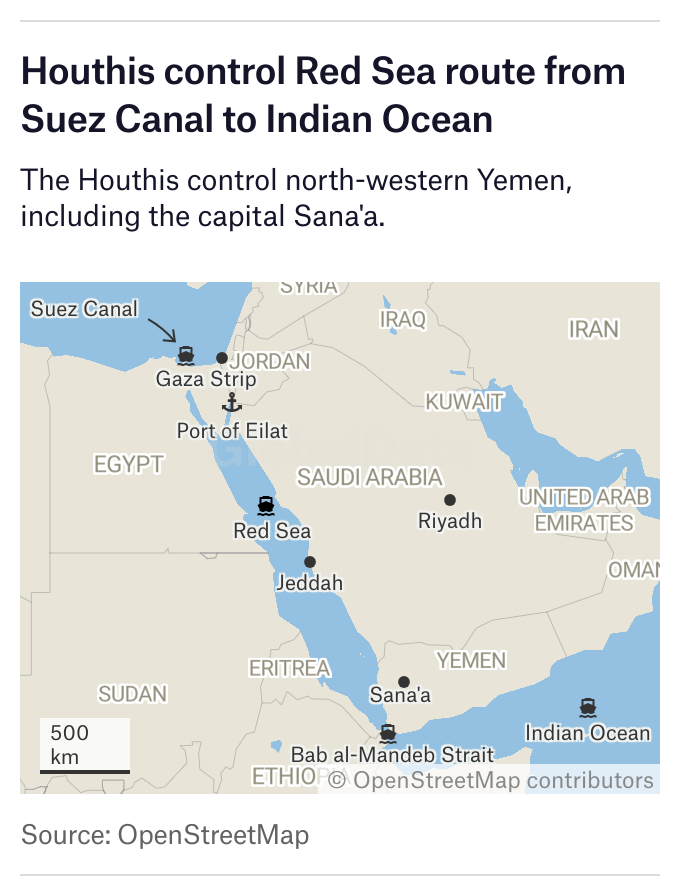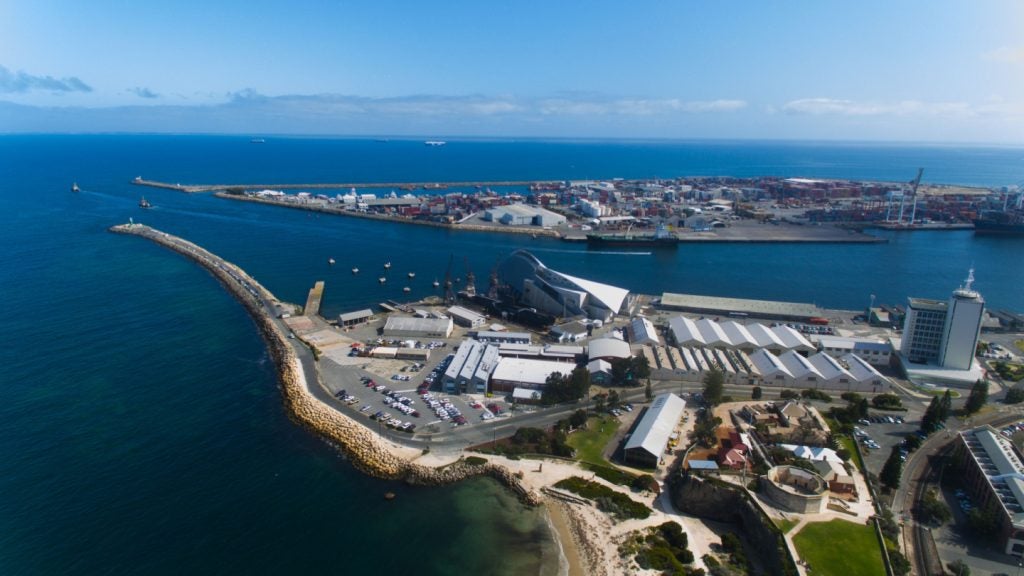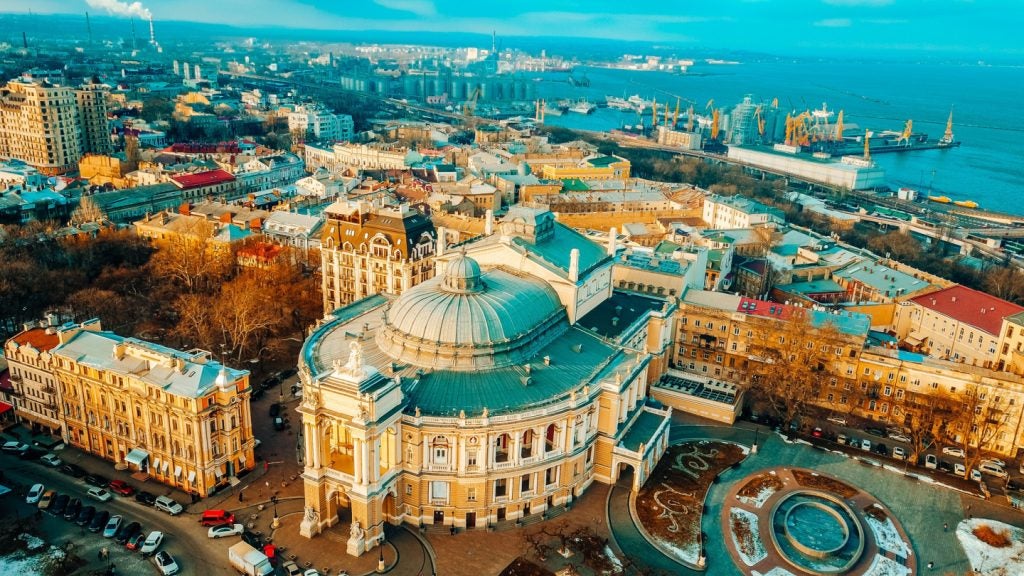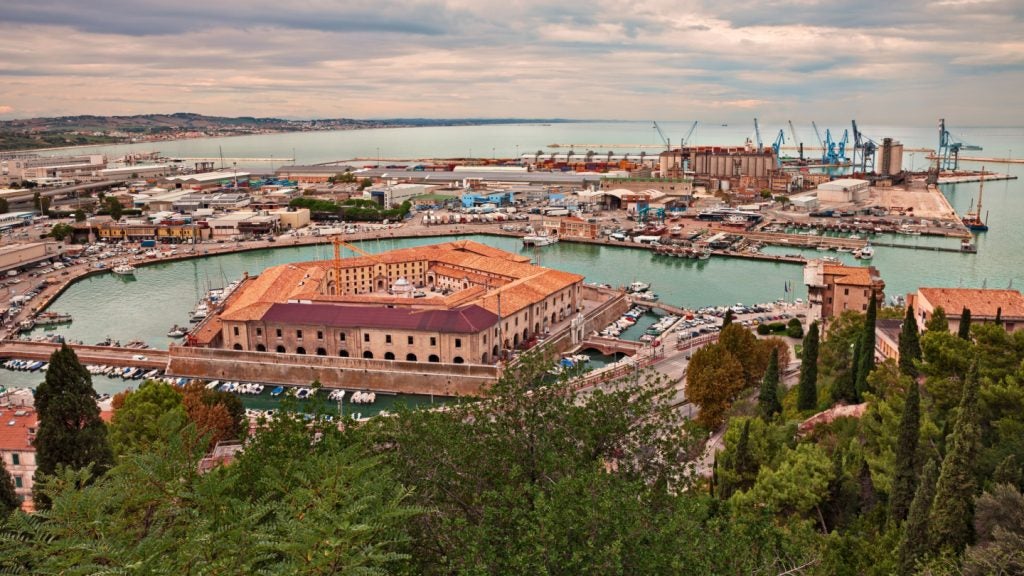Yemen’s Houthi militia group warned on Tuesday (14 November) that it will attack Israeli ships in the Red Sea, as it claimed responsibility for a missile assault on the key port city of Eilat in southern Israel.
“Our eyes are open to constant monitoring and searching for any Israeli ship,” Houthi leader Abdul-Malik al-Houthi said in a live speech reported by the New Arab. “We will search and verify the ships that belong to [Israel], and we will not hesitate to target them and let everyone know that [Israel] is afraid.”
The Houthis have declared war on Israel in response to the ongoing conflict in the Palestinian territories. Control over Yemen’s north-western coastline means the Houthis have vantage points to launch attacks on Israeli ships traversing the Red Sea and Bab al-Mandab Strait.
“Israeli-affiliated vessels transiting these regions are at a heightened risk of attack by Houthi rebels or the Islamic Revolutionary Guard Corps Navy.” Noah Trowbridge, analyst at maritime security firm Dryad Global, told Ship Technology. “Subsequently, traffic of Israeli-flagged vessels seems to have reduced in the Red Sea.”
The Bab al-Mandab Strait chokepoint
The Houthis have claimed that Israeli-affiliated vessels in the Red Sea are withholding AIS signals to avoid identification by Houthi surveillance.
“The enemy relies on camouflage in its movement in the Red Sea, especially in Bab al-Mandab, and did not dare to raise Israeli flags on its ships … and turned off identification devices,” Al-Houthi said.
Ever since the Houthis took control of Sana’a, Yemen’s capital, in 2014, the group has had direct access to the strategically crucial Bab al-Mandab Strait.
The 18-mile-wide pass sits between Yemen and Djibouti, linking the Suez Canal to the Indian Ocean via the Red Sea – one of the busiest shipping lanes in the world.

By laying sea mines, seizing ships or deploying water-borne drones in the Bab al-Mandab Strait, the Houthis could not only disrupt Israel’s trade but the 10% of all global trade that passes through Red Sea waters.
In this scenario, “insurance premiums would soar, and naval inspections would slow down traffic significantly”, Trowbridge said.
Houthi missiles target the Port of Eilat
The Houthis have already set the precedent for such aggression.
On Tuesday (14 November), military spokesperson Yahya Sare’e said the Houthis had “fired a salvo of ballistic missiles” towards Israeli targets including the Port of Eilat.
“The port of Eilat has operated as usual since [the Hamas attack] on 7 October,” Ilan Goldenberg, CEO of Israel-based maritime insurance business Harpaz P&I, told Ship Technology. “Israel is equipped with the Arrow 3 anti-ballistic missile [defence system] and prevented the UAV shot by the Houthi groups to cause damage in Israel.”
Eilat is Israel’s third busiest port – and only Red Sea harbour. Located by the Aqaba Gulf, the Port of Eilat’s main advantage is the shorter shipping route it offers for ships to reach the Indian Ocean from Israel without having to pass through the Suez Canal.
The assault came “after 24 hours of another military operation carried out by our armed forces with drones on the same targets,” Sare’e added.
How did the Houthis reach Israel from Yemen?
More than 2,000km separate the Yemeni border from Eilat. The Houthis were able to launch aerial attacks on the seaport and other Israeli targets by using long-range drones.
The group has some experience in this method, using long-range weapons in previous strikes on Jeddah, Riyadh and other oil facilities in Saudi Arabia amid the Houthis’ ongoing conflict with the Saudi-led coalition in Yemen.
Houthi forces also shot down a US MQ-9 Reaper drone, which the group claimed crossed over Yemeni airspace. The US has shot down multiple Houthi missiles and drones over the Red Sea.
The Houthi rebel group is part of the so-called ‘Axis of Resistance’ opposing US and Israeli control of the Middle East.
Backed by Iran, the alliance includes militant forces from Lebanon, Syria, Yemen and Palestine.
Our signals coverage is powered by GlobalData’s Thematic Engine, which tags millions of data items across six alternative datasets — patents, jobs, deals, company filings, social media mentions and news — to themes, sectors and companies. These signals enhance our predictive capabilities, helping us to identify the most disruptive threats across each of the sectors we cover and the companies best placed to succeed.













